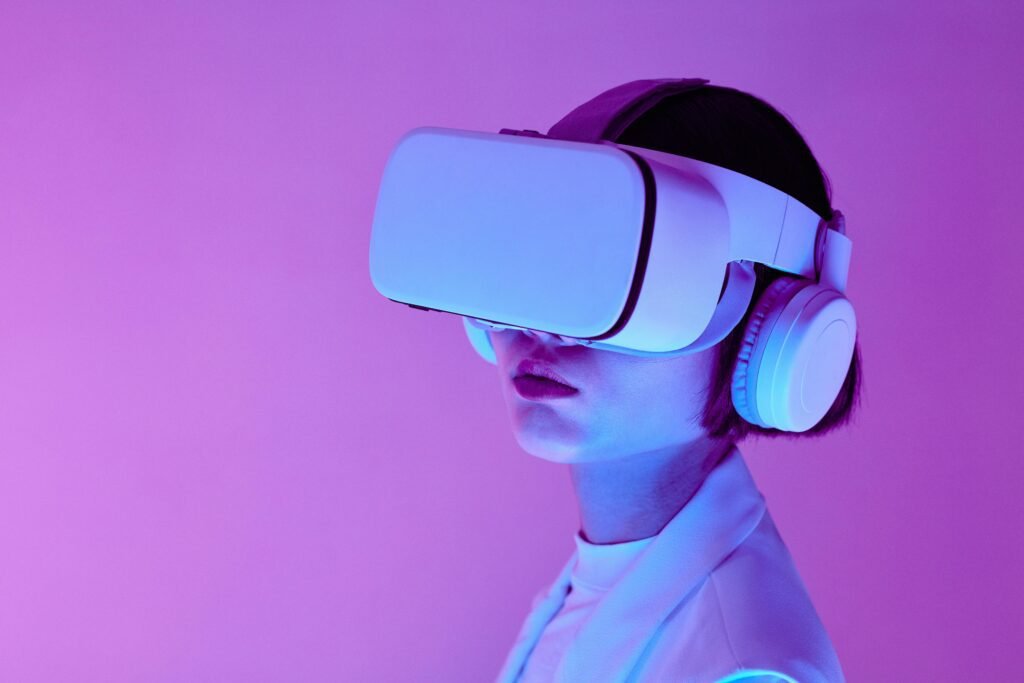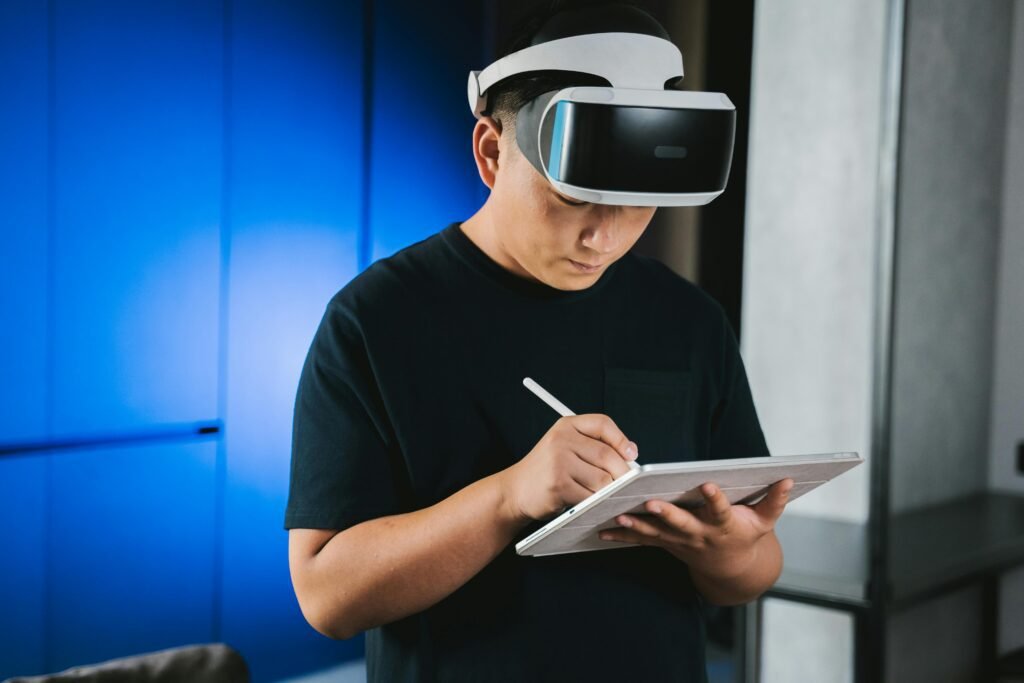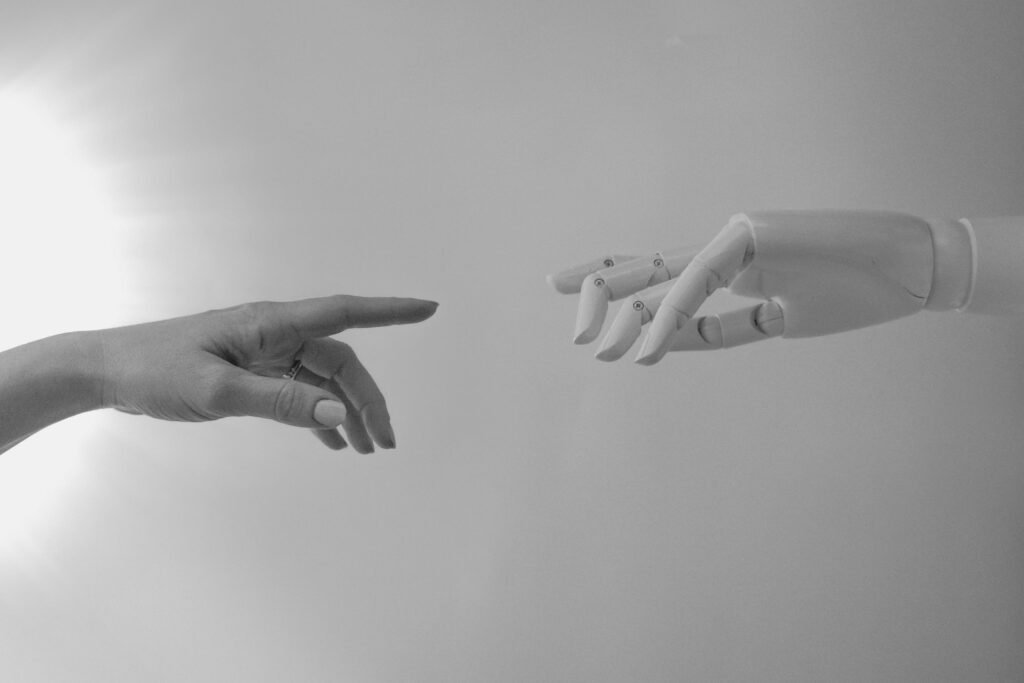AI in Daily Life: How Artificial Intelligence Is Changing the Way We Live

AI in daily life has become so common that we may not even realize how much we depend on it every day. From the moment we wake up to the time we go to bed, artificial intelligence is quietly working in the background to make our lives easier, faster, and smarter.
Whether you’re using voice assistants, receiving personalized recommendations, or even unlocking your phone with your face, AI plays a crucial role. Let’s explore how artificial intelligence in our daily life is making a meaningful impact.
1. AI in Daily Life: From Morning to Night

Our interaction with AI in daily life often starts first thing in the morning. For example, when you check the weather on your phone or ask a voice assistant to read your schedule, that’s AI in action.
Additionally, artificial intelligence in our daily life powers your phone’s face recognition, app suggestions, and even battery optimization. These features may seem simple, but they rely on complex algorithms to personalize your experience.
Furthermore, AI-based alarm apps use sleep data to wake you up at the perfect time. As the day begins, AI continues to support your routine.
2. Smart Homes and AI-Driven Automation

Artificial intelligence in our daily life is most visible in smart homes. Lights that turn on when you enter a room, smart thermostats that adjust the temperature automatically, and voice-controlled devices — all use AI to learn your habits.
Moreover, AI-powered security systems detect unusual activity and send alerts instantly. This not only ensures safety but also offers peace of mind.
Because AI adapts to your preferences over time, your smart home becomes more responsive and efficient with regular use.
3. AI in Daily Life Enhancing Work and Productivity

At work, AI in daily life boosts productivity in multiple ways. Email filters, calendar reminders, grammar checkers, and task management tools are just the beginning.
Many businesses use AI-powered analytics to understand customer behavior, forecast sales, and make data-driven decisions. Even content creation and customer support are being assisted by intelligent tools.
Since these tools automate repetitive tasks, professionals can focus on creative and strategic work.
4. Personalized Entertainment and AI Recommendations

Have you ever noticed how your favorite platforms suggest movies, songs, or articles that perfectly match your taste? That’s the result of artificial intelligence in our daily life through recommendation engines.
AI studies your behavior — what you like, skip, or pause — and fine-tunes the content shown to you. As a result, you spend less time searching and more time enjoying what matters to you.
This level of personalization is now a standard expectation across apps and websites.
5. Smarter Shopping with AI Assistance

From online shopping to grocery apps, AI in daily life is changing how we buy. Platforms suggest products based on your preferences, price range, and browsing history.
Chatbots answer questions in real-time, helping you make better purchasing decisions. Additionally, fraud detection systems powered by AI protect your transactions and financial data.
With artificial intelligence in our daily life, shopping becomes more efficient, personalized, and secure.
6. AI in Healthcare and Personal Well-being

One of the most transformative applications of AI in daily life is in healthcare. AI-driven health apps track your steps, heart rate, sleep, and even stress levels.
Hospitals use AI for diagnostic assistance, helping doctors detect diseases earlier and more accurately. Telemedicine services also rely on AI to recommend care based on symptoms.
Importantly, wearable devices and fitness trackers use real-time AI analysis to guide your wellness journey.
7. Navigation, Travel, and AI Convenience

Planning a trip or commuting? Artificial intelligence in our daily life helps with real-time navigation, traffic updates, and ride-sharing apps.
AI suggests the fastest route, predicts delays, and even recommends places to visit or dine. Airlines, hotels, and travel apps also use AI to personalize offers and improve customer service.
Because of this, travel is now more convenient, cost-effective, and hassle-free.
Benefits of AI in Daily Life
Let’s summarize the major advantages of using AI in daily life:
- Saves time with automation
- Enhances accuracy in tasks
- Provides personalization
- Improves safety and convenience
- Supports better health monitoring
- Boosts work efficiency and focus
Challenges and Responsible Use of AI
Despite its benefits, artificial intelligence in our daily life also raises questions about privacy, data usage, and job automation.
However, governments and tech companies are working together to set ethical guidelines and ensure responsible AI development. As users, staying informed and mindful is essential.
That being said, AI continues to evolve rapidly, offering more potential than problems.
The Future of AI in Daily Life

Looking ahead, AI in daily life is expected to grow even more powerful and accessible. It will not only assist but also anticipate our needs.
From smarter cities to advanced personal assistants, artificial intelligence will continue to simplify our lives while opening up new opportunities.
By understanding how AI works and adapting to its use wisely, we can take full advantage of what the future holds.
🌟 Final Thoughts
AI in daily life is no longer a futuristic concept — it’s happening all around us. As we embrace these innovations, it’s clear that artificial intelligence in our daily life is not replacing humans but enhancing how we live, work, and connect.
Make the most of these tools and watch how AI transforms your everyday experiences into something smarter and more efficient — all without even realizing it.
What part of AI do you use the most in your daily life? Let us know in the comments below!

